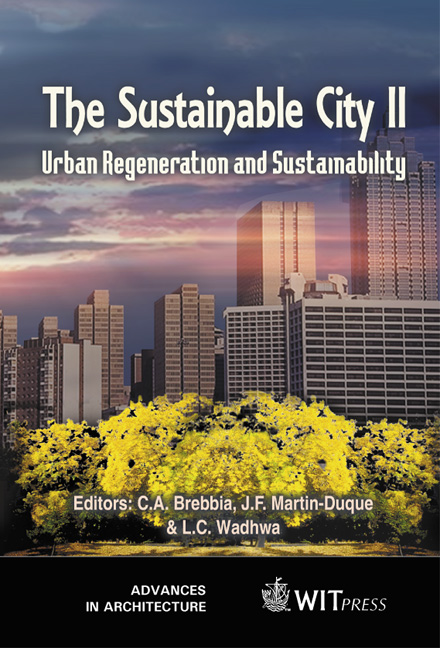Limitations To Community Involvement In Rehabilitation Of Historic Areas
Price
Free (open access)
Transaction
Volume
54
Pages
Published
2002
Size
555 kb
Paper DOI
10.2495/URS020421
Copyright
WIT Press
Author(s)
E Assi
Abstract
Sustainable development considered today by the World Commission on Environment and Development (WCED) as a powerful motivation for urban conservation. Basically, it is a process of urban development based on constant reuse of existing built and natural resources, associated with a low input of energy for adaptation to new requirements conceived in society. This process founded in the local culture, and its capacity to encourage rehabilitation strategy and re-use of historic buildings. Housing renewal of historic areas in the urban conservation strategy, besides being a process of returning a property to a state of utility, is also a tool to preserve architectural and historical significance. The main aim of housing renewal in historic areas is mainly to supply comfort for the residents by improving their living conditions, keep the population live on site, reuse of forgiven traditional crafts, and to raise the cultural awareness of the architectural patrimony and the cultural heritage. This paper explores the dialogue approach as one of the applied techniques in community involvement in rehabilitation of historic areas and mainly in housing renewal projects. The limitations of this technique at different phases of the rehabilitation process are discussed. During survey, design and construction stages, there is a constant interaction, at different levels between technical and social matters, and between professional advisers and building users. The advisers should thus consider both social and technical aspect of the improvement work. The paper conclude that keeping an ethic of conservation and maintaining good quality of work through community involvement are one of the essential measures that the professional team should consider during the rehabilitation process.
Keywords





